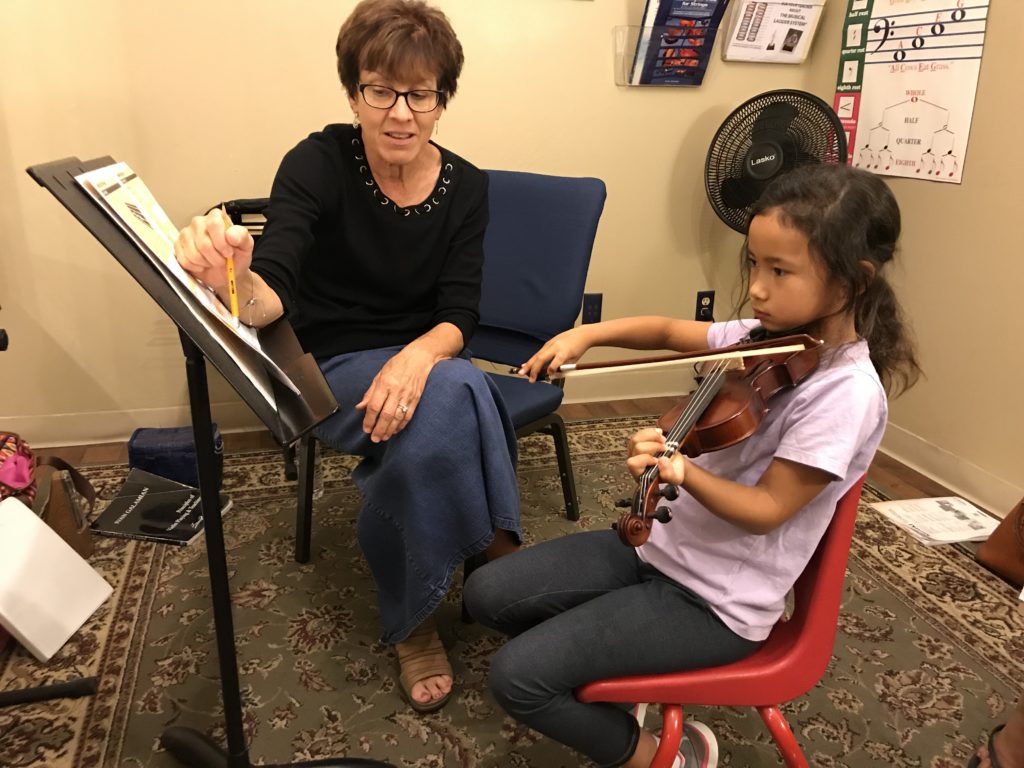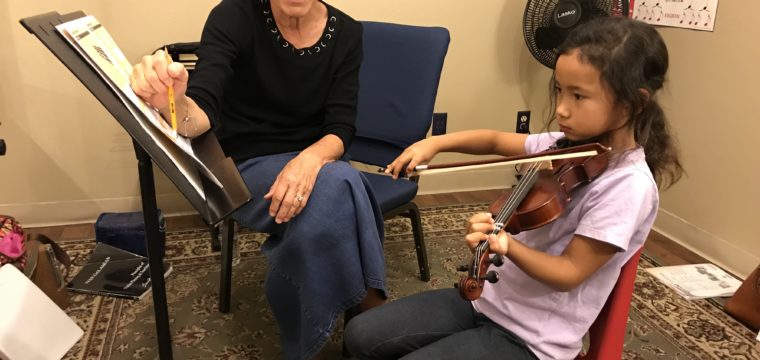
Have a dedicated practice area at home
It’s impossible to develop a good technique on your instrument if you don’t have a good setup at home. Aim for a dedicated area, and try to keep the instrument in plain sight if possible. For example, a guitarist would have a chair, a music stand, and a guitar stand with the guitar on it. This way, you see your instrument every day, and you have everything setup to play it. Having a dedicated area sends the message that music is an important part of your home and family.
Own the essential equipment
If you want your student to be successful, you’ll need to have some additional items after you purchase an instrument. A music stand, a tuner, a metronome, a way to play recorded music for backing tracks. Each instrument and student will have its own set of essential equipment. Please check in with your teachers and make sure that you are on track and providing everything your music student needs to make sure they are able to thrive.
Create a practice plan
I recommend creating the practice schedule with your teacher, and the student. It’s important to let the student decide when they will practice. For example, your teacher might recommend practicing at least 3 days per week for about 30 minutes each session. From there, I’d let the student decide which days, and what time. Practicing is hard, and it’s easy to let the week go by without fitting it in. Having a practice plan and trying to stick with it helps a lot. Remember, there will be many times that you don’t stick to the plan. Don’t be hard on yourself, just re-visit the practice plan often and change it if you need to. Remember to give tons of positive comments when you are able to get it done.
Set short-term goals
Learning to play music is one of the most rewarding and complex skills you can acquire. Beginning students will have to process lots of totally new information. This can be daunting, especially during the first year of lessons, which is when students are most likely to give up. Setting short term goals during the first 12 – 24 months of music study helps tremendously. An example of a short term goal: Practice for 15-30 minutes for 5 days this week. If goal is achieved, give a reward.
Participate in recitals
There’s no better way to make sure you’re practicing correctly, then to get up in front of people and test yourself. It is a huge learning experience, and teaches budding musicians skills they can learn no other way. It’s scary for first timers, however, with good preparation with an appropriate level piece of music, students will have early successes and build real confidence. This type of confidence must be earned. At Allegro, we offer two all school recitals per year in the professional performance halls at the University of Arizona and Catalina Foothills High School. Recitals are voluntary, but we strongly suggest you sign up for the next one!
Encourage students to discover and learn the music they love
A big part of staying happy and motivated to practice comes down to choosing the right songs to learn. Although we understand the value of playing through a method book, we strongly encourage students and parents to bring in their favorite songs. If you’re not ready to play the piece, due to difficulty, your teacher can often create a level appropriate option. It’s important to stay in touch with your teacher and update them on what your current favorite music is, and what your goals with music are. For example, we wouldn’t want to force an aspiring rock musician to play classical music. It’s also a good idea to know some “useable” songs. Like “Happy Birthday”, “Star Spangled Banner”, holiday tunes, seasonal tunes, movie themes, etc.
Think long-term
Playing music should be thought of as a process that can keep you challenged and bring you joy for a lifetime. Too often, we give in to the frustrations associated with practicing, busy schedules, etc and lose sight of the goal. In order to have success with music, you have to have realistic expectations. Learning music won’t happen in a month. It’s not going to give us instant gratification. You have to earn the skills through hard work over a period of time. You can’t cheat the system, you get out what you put in. Personally, I think this is a fantastic metaphor for almost every other challenge we will encounter in our lives. I suggest committing to at least 12 months of lessons when you start an instrument. There are going to be ups and downs, but if you stay the course, you will begin to reach your goals and eventually learn the language and technique.
It’s hard because it’s WORTH IT! Good luck!
Joshua Brown, MM, Co-Director

